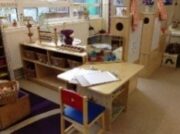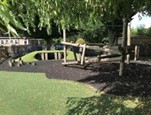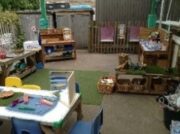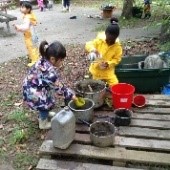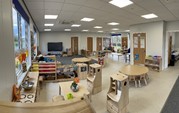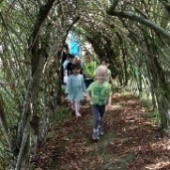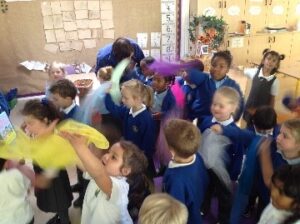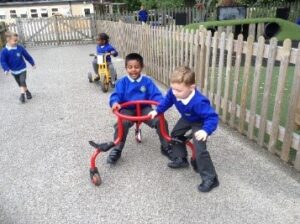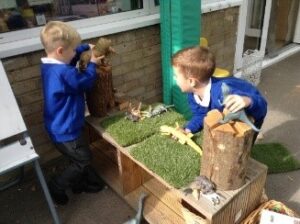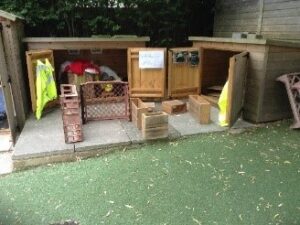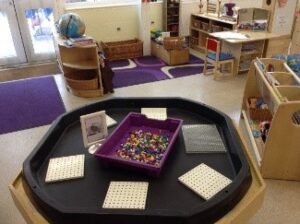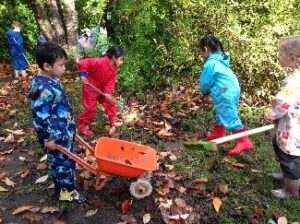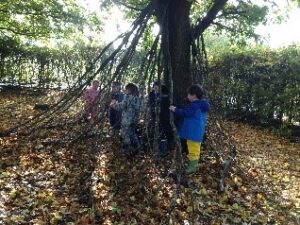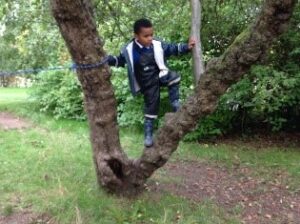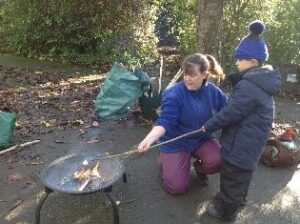Subject Lead: Mrs K O’Connor
EYFS Curriculum
- EYFS School Development Plan 2023-24 (572.15KB)
- Nursery Curriculum Overview 2023-2024 (547.59KB)
- Reception Curriculum Overview 2023 - 2024 (687.10KB)
Intent
The Early Years Foundation Stage is the crucial beginning of every child’s learning journey. At the Ryde Primary School, we believe that every child is unique and strive to provide an enabling environment that is nurturing and inclusive.
“The environment plays a key-role in supporting and extending children’s learning and development” (Department for Education, 2020)
We believe that all children should celebrate their diversity and embrace differences in a friendly and happy atmosphere. This provides positive experiences for all children to become curious learners who are motivated and have a thirst for learning. We foster positive relationships with the children and their families in which children learn to be resilient, creative, ambitious and respectful in a safe, nurturing and inclusive environment.
Implementation
At The Ryde Primary School, we believe that the environment, both inside and outside, play a crucial role in providing fun, engaging and challenging learning for our children. We believe that by providing a significant part of our day as ‘Explore and Learn’ (free play) we are providing every child with the essential opportunities they need to develop social skills, executive function and self-regulation, imagination and creativity. It enables children to take the first steps towards tackling problems and conflict without adult intervention.
In two reports, ‘The Effective Provision of Pre-School Education’ (Sylva et al., 2004) and ‘Researching Effective Pedagogy in Early Years’ (Siraj, Blatchford et al., 2002), found that children in high-quality settings were offered appropriate opportunities to engage in a play-based curriculum with learning that was supported by practitioners. Play in the most effective settings was two-thirds child-initiated. In excellent settings adults supported children’s play without dominating.
At The Ryde Primary School, we design play opportunities, taking into consideration seven types of play as defined by Stuart Brown –
‘Play, How it shapes the Brain, Opens the Imagination, and Invigorates the Soul (2010).
Our play opportunities embrace:
Body and movement play
Ensures the most rapid growth of the brain.
Object play
Curiosity about objects is an innate part of play.
Imaginative play
One of the most powerful. Children create coherent narratives often exploring past, present and future. Develops resilience, creativity and empathy through else’s imagining someone else’s experiences.
Social play
Starts with parallel play developing into collaborative play. ‘Rough and tumble’ play is necessary for social awareness, cooperation and fairness.
Celebratory and ritual play
This is initial by rituals or social experiences – playing birthday parties, religious celebrations or family occasions.
Storytelling and narrative play
Children learn about the world, themselves and their place in it through stories.
Transformative and creative play
Engaging in fantasy play trying out new behaviours and thoughts – they learn to alter the reality of their everyday lives.
Alongside these purposeful play opportunities, we plan positive adult led sessions that will teach reading, writing and maths.
‘Ofsted report Bold Beginnings (2017) – key principle to remember is that reading, writing and maths require a very different approach from other areas of the Early Years curriculum.’
Reading/Phonics
Little Wandles Letters and Sounds revised.

Writing
linked to book of the week/phonics
Maths
NCETM Mastery Mathematics Programme

Children need to be physically ready to learn by ensuring they have the core strength, shoulder strength and be able to cross their midline. Throughout the year, time is spent developing these skills. Any child needing extra support is quickly identified.
We think very carefully about our pedagogy and how to reduce the likelihood of cognitive overload in the Early Years. We follow these principles:
Link new information to prior knowledge
So that children are not processing new information from scratch, reducing cognitive overload as children have limited working memories.
Reduce visual and auditory distractions
So children are more focused on their learning and not easily distracted. Our learning spaces are calm and well organised.
Use daily routines
We use our daily routine to gather information and learning over a period of time. For example, our daily calendar session reinforces the days of the week, months of the year and weather conditions each day.
Our Early Years curriculum will always reflect the starting points that our children enter our school with. This is taken into account each year but the prime areas are always the main focus:
Communication and Language
Any child needing extra support with be involved with the NELI programme.
Physical Development
Ready to learn programme/Mini Movers
Personal, Social and Emotional Development
Jigsaw and daily circle time sessions
Our weekly Forest school sessions allow the children the time and space to develop skills, interest and understanding through a range of activities which provide practical, hands-on experience in a natural environment. It encourages resilient, confident, independent and creative learners. As well as exploring our own school environment during Forest School, we make regular trips to The Dell, embracing our local community.
Capital Culture is another key influence in children beginning their learning journey in the Early Years. Capital culture is the knowledge that we have that gives us opportunities in our lives. Capital culture in the Early Years is essentially the knowledge children need in order to meet the Early Learning Goals. If they have this knowledge they have greater opportunities in KS1 than those children who do not. In order for each child to develop and learn they need to be able to think. If we want children to think, they need the language with which to do so. Vocabulary is therefore a form of capital culture or powerful knowledge and a vital skill for every child. We plan for vocabulary acquisition in 3 areas:
Tier 1 words
Everyday words
Tier 2 words
Academic or expressive words
Tier 3 words
Subject-specific words.
Alongside thinking, reading is a gateway to learning. We strive to immerse our children into worlds that they have never imagined, visit countries they have only heard of, deep dive into oceans and fly into space. Reading is a way of giving children capital culture and powerful knowledge. Our intent at The Ryde is that every child develops a love of books and moving on to Key Stage 1 is able to read a Phase 4 book with confidence and enjoyment.
In order for each child to progress, our curriculum is carefully sequenced to provide the right opportunities. Each year we assess our current cohort and adapt our curriculum as necessary, reflecting on the current needs.
To develop and maintain the positive relationships that we have with our families within The Ryde School community, we offer regular workshops in Phonics, Writing and Maths. Families have the opportunity to attend stay and play sessions, library reading sessions, Forest school sessions and numerous other events throughout the year. A class blog highlights the learning within school and provides a platform for families to learn and chat with their children about the different and vast learning experiences that they have at school. Families are encouraged to comment on the blog, building a positive relationship between home and school.
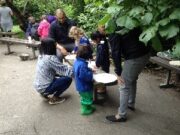
Impact
Children at The Ryde Primary School are ready for the next stage of their learning journey in all seven areas of the statutory Early Years Learning Goals. The impact of developing warm and positive relationships with adults and their peers ensures they are positive about coming to school, more self-confident and believing in what they can achieve. This positive start in the Early Years will have a significant impact on their development – intellectually, socially, emotionally, physically, behaviourally and morally. It also is vital for their self-confidence, mental health, motivation to learn and achievement in school and later in life. The ability to resolve conflicts in an appropriate manner, knowing the differences between right and wrong and having the capacity to sustain friendships and relationships are lifelong skills that ensure they are positive role models within the community they live.
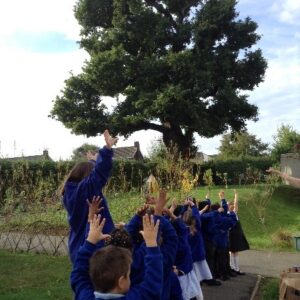
From little acorns mighty oaks grow.

